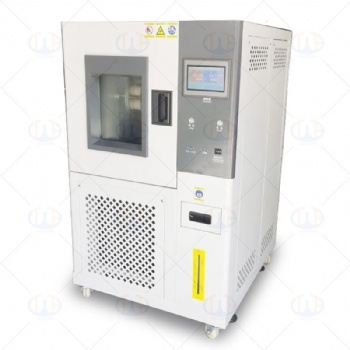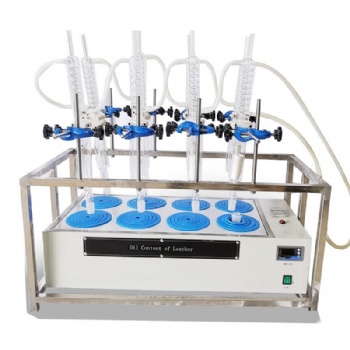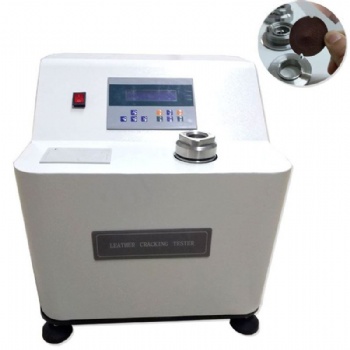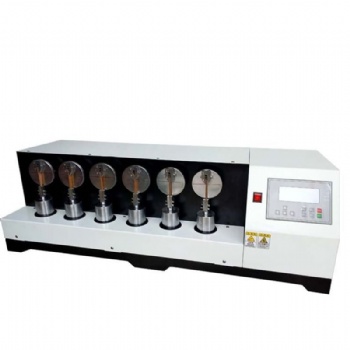News
The Böhme Abrasion Tester: Testing Abrasion Resistance to EN 14157 and DIN 52108 Standards
The Böhme Abrasion Tester: Testing Abrasion Resistance to EN 14157 and DIN 52108 Standards
The durability of materials, especially in flooring, construction, and surface finishing, is vital to ensure a product’s longevity and quality. The Böhme Abrasion Tester is widely recognized as a reliable instrument for testing abrasion resistance, particularly of natural stones, tiles, and concrete. Two prominent standards guiding its usage are EN 14157 and DIN 52108, both specifying methods to assess material wear and resistance. In this blog, we’ll explore the functionality, testing standards, testing procedure, and benefits of the Böhme Abrasion Tester.
What is the Böhme Abrasion Tester?
The Böhme Abrasion Tester is a specialized testing machine designed to evaluate the abrasion resistance of materials, primarily stone and concrete. It does this by simulating the wear a material experiences under friction, replicating conditions where surfaces encounter frequent contact with abrasive particles. This makes the tester essential in industries that produce or use materials for flooring, paving, or countertops, ensuring that these products can withstand long-term usage and environmental exposure.
Key Standards: EN 14157 and DIN 52108
Two internationally recognized standards govern the use of the Böhme Abrasion Tester:
EN 14157: The European standard for testing natural stones, particularly flooring and paving materials, for abrasion resistance. This standard defines test methods to measure a material’s wear over a given surface area under controlled conditions.
DIN 52108: A German standard focusing on the abrasion resistance of natural and artificial stones, as well as construction materials like concrete. This standard includes specific guidelines for specimen preparation, testing conditions, and evaluation of results.
Both standards specify key parameters, including the amount of abrasive material, the applied force, and the number of rotations or cycles required for accurate, repeatable results.
How the Böhme Abrasion Tester Works
The Böhme Abrasion Tester operates by applying abrasive forces to a material sample, mimicking real-world conditions where surfaces are subjected to constant friction. Below is a breakdown of the typical testing process according to EN 14157 and DIN 52108:
1.Sample Preparation: Cut the sample to a standard size, typically 71mm in diameter and 25mm in thickness, as per the standards’ specifications. Condition the samples to ensure they meet the required humidity and temperature conditions for accurate results.
2.Mounting the Sample: Secure the specimen on the rotating disc or grinding wheel of the Böhme tester, which is prepared with abrasive material, such as corundum sand or quartz sand.
3.Applying the Abrasive Load: Set the machine to apply a specified load, typically 294 ± 3 N. The abrasive material is evenly spread under the specimen before the rotation begins.
4.Performing the Test: The specimen is subjected to abrasive forces by rotating for a set number of cycles, often 352 revolutions in the case of EN 14157. The abrasive particles wear down the material surface, simulating real-life wear.
5.Evaluating Results: After testing, measure the material’s wear in terms of volume or mass loss. For EN 14157, results are typically reported as the volume of material lost in cubic centimeters, while DIN 52108 may require mass loss in grams. Lower wear values indicate higher resistance to abrasion.
Benefits of Using the Böhme Abrasion Tester
Realistic Simulation of Wear Conditions: The Böhme Abrasion Tester simulates the kind of abrasive friction surfaces experience in real-life applications, providing an accurate assessment of how materials will perform over time.
Enhanced Quality Control: Using the tester helps manufacturers determine which materials can withstand high-traffic or high-use environments, ensuring product reliability.
Compliance with Standards: By following EN 14157 and DIN 52108, the tester ensures that materials meet international quality standards, which can be vital for gaining market access and consumer confidence.
Optimized Material Selection: The insights gained from abrasion testing support smarter material selection, allowing manufacturers to choose materials best suited for durability and cost-effectiveness in specific applications.
Conclusion
The Böhme Abrasion Tester, adhering to EN 14157 and DIN 52108 standards, plays a crucial role in ensuring that natural stones, concrete, and other construction materials are durable and resilient under wear conditions. This machine allows manufacturers to assess and improve abrasion resistance, leading to higher quality products that meet stringent durability standards.
compression testing machine, DIN EN14509 sandwich universal testing machine, thickness measure meter of ceramic tiles, 2000n tension testing system
Categories
Contact Us
- +86-18615632092
- wtbequipment@hotmail.com
- sophie-tester
- +86-18615632092




 售前客服
售前客服